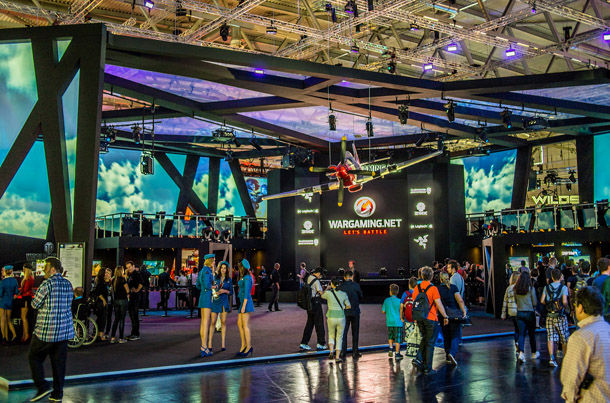The Bernard Rodriguez Journal
Exploring the latest trends and stories in news and lifestyle.
Game On: When Pixels Collide in Epic Events
Discover the thrilling world of epic gaming events where pixels collide! Unleash your inner gamer and join the action now!
The Evolution of Gaming Events: From Pixelated Competitions to Epic Showdowns
The landscape of gaming events has undergone a remarkable transformation over the years, evolving from small, pixelated competitions in the early days of video games to grandiose showcases attracting thousands of fans today. In the 1980s and 1990s, local arcades would host informal tournaments, drawing players to compete in titles like Pong and Street Fighter. As the internet became more prevalent, these events expanded beyond physical locations. The advent of online multiplayer brought about a new age of competition, leading to the rise of esports, where players from around the world could compete in high-stakes tournaments, watching their favorite games like Dota 2 and League of Legends evolve into multi-million dollar spectacles.
Today, gaming events are not only about competition but also about community and celebration. Major conventions such as E3 and PAX showcase the latest in gaming technology, allowing developers and players to interact directly. These events feature a variety of experiences, from competitive gaming tournaments to interactive demos of upcoming releases. Furthermore, live streaming platforms like Twitch have revolutionized how audiences engage with these events, enabling them to participate virtually from anywhere in the world. As gaming continues to progress, the landscape of gaming events will undoubtedly keep evolving, promising even more immersive and exhilarating experiences for gamers and fans alike.

Behind the Scenes: How Epic Gaming Events Are Organized and Executed
Organizing and executing an epic gaming event is a multifaceted endeavor that requires meticulous planning and coordination. From the initial concept to the final execution, event organizers must juggle various elements such as venue selection, sponsorship acquisition, and participant engagement. Behind the scenes, a dedicated team of professionals works tirelessly to create an immersive experience for both players and fans alike. This includes logistical arrangements, such as ensuring high-quality internet connectivity, gaming setups, and comfortable accommodations for participants and attendees.
One of the most challenging aspects of managing a gaming event is scheduling. Typically, events feature a packed agenda that includes tournaments, panels, workshops, and entertainment segments. Organizers often rely on detailed timelines and checklists to keep everything on track. Additionally, they must be prepared to handle unexpected issues, such as technical malfunctions or last-minute changes in the lineup. As a result, effective communication and teamwork are crucial throughout the planning and execution phases, ensuring that the event runs smoothly and meets the high expectations of the gaming community.
What Makes a Gaming Event Epic? Key Elements That Captivate Players
When it comes to creating an epic gaming event, several key elements are essential to captivate players and leave a lasting impression. First and foremost, immersive environments play a crucial role. Whether it's a massive convention center or an online streaming platform, the atmosphere needs to be engaging and vibrant. Elements like themed decorations, interactive booths, and live gaming demos create an exciting backdrop that pulls players into the experience. Additionally, high-profile tournaments featuring popular games can draw large crowds, creating a sense of competition and camaraderie among attendees.
Another significant factor is community engagement. Events that incorporate player feedback and participation foster a sense of belonging amongst gamers. This can be achieved through panels, Q&A sessions with developers, and fan meet-and-greets. Furthermore, exclusive content or merchandise available only at the event can ramp up excitement and give gamers something to remember. Ultimately, a successful gaming event balances entertainment, competition, and community, ensuring every attendee walks away feeling inspired and connected.